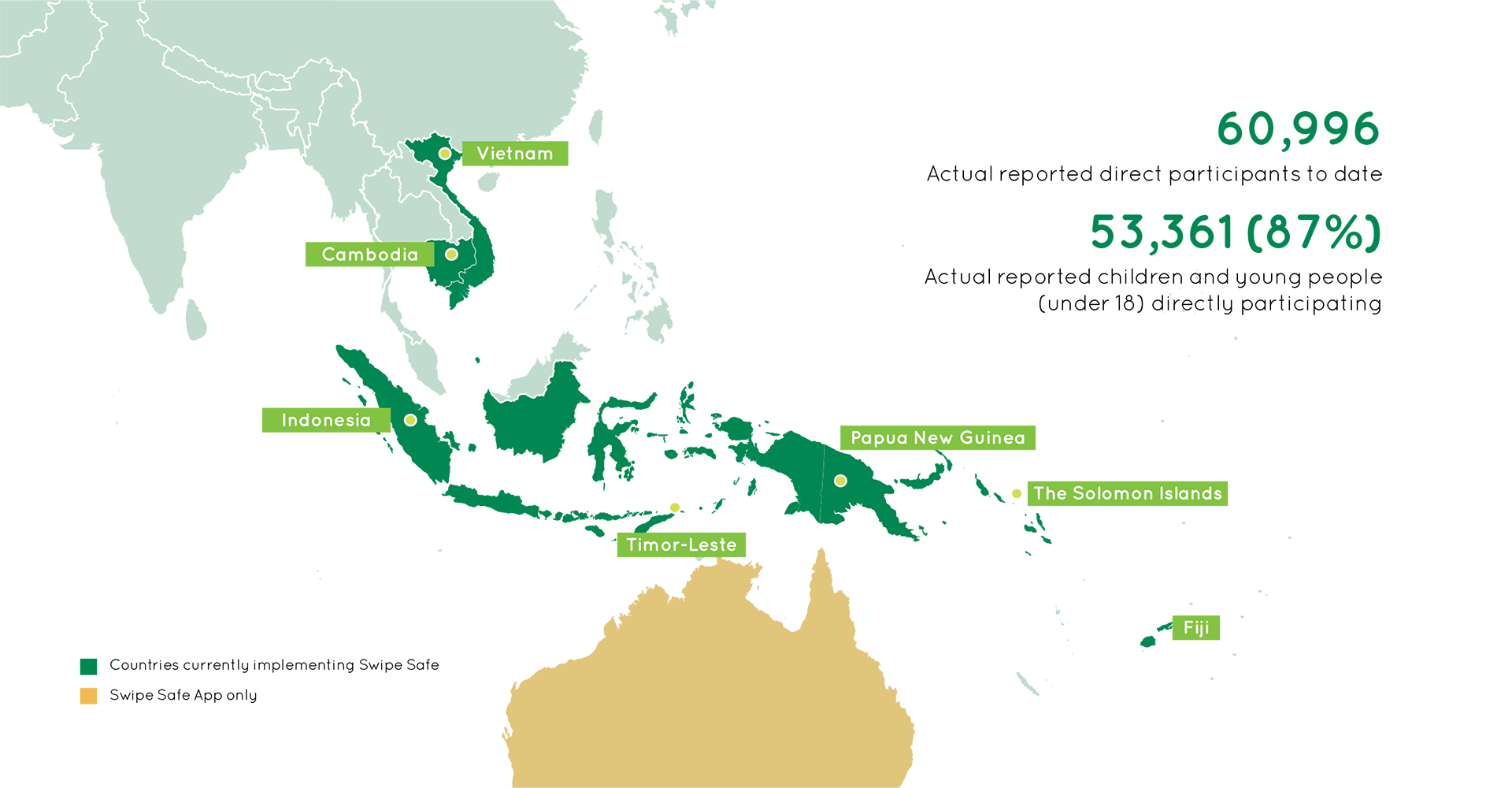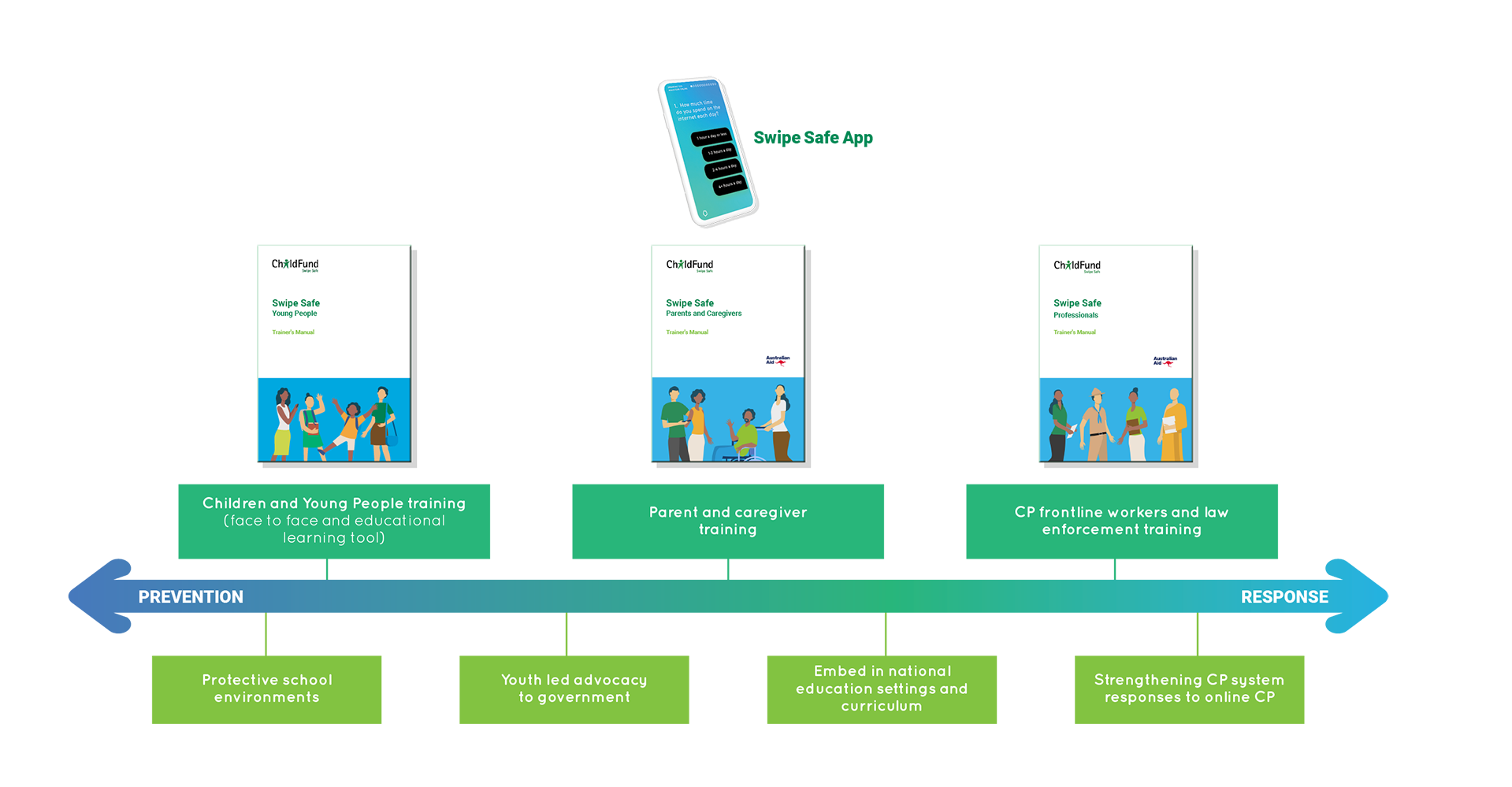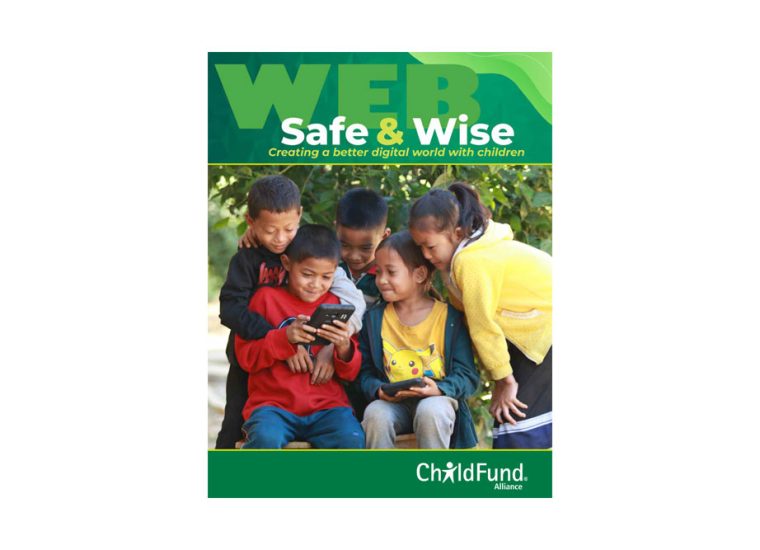The History of Swipe Safe
As use of the internet grows, so too can the risks young people face online. Through technology, children and young people may be targeted by scams, experience cyberbullying, or be exposed to sexual, sexist, racist, violent, or other inappropriate content. Children are at risk of child sexual exploitation and abuse, child trafficking, economic exploitation and sextortion, manipulation, and behavioural nudging. The remarkably fast pace of technological development means the way young people are engaging with technology, and the types of risk they face online are also advancing rapidly.
Primary research conducted by ChildFund Australia across the Pacific and South-East Asia found that while children and young people are confident in their online abilities and are broadly aware of online risks, they do not always have the digital skills or awareness to protect themselves online. Meanwhile, their parents and caregivers reported low levels of confidence in their ability to provide support. They did not have the digital literacy skills to provide protection in the online space. Our research also identified gaps in the knowledge and training of frontline support workers, as well as online safety policy and legislation.
That’s why in 2017, ChildFund Australia created Swipe Safe – so that young people can safely navigate their online lives; balancing the benefits of being online with an awareness of the possible risks. Swipe Safe is a face-to-face training program delivered to young people, parents, and professionals. The program is designed to make learning easy and fun, while providing essential skills and knowledge across a range of cyber security topics. Participants use training phones to develop practical online safety skills like reporting, blocking and safe-search, as well as learning about online benefits and risks. Training for parents and professionals has a greater focus on how to support children to stay safe online, and how to access support and services.
In 2023, the Swipe Safe App was created, to enhance the existing training package. The Swipe Safe App is a hands-on learning tool that helps young people understand the online world and how to interact with it in a way that keeps themselves and others safe.
Fundamentally, Swipe Safe is built around six internet key concepts – or “Six Sacred Stones – that embody a universal guide on online engagement:
Public: Any information you post or share online, even if you do it privately, has the possibility to be shared or accessed.
Permanent: Whatever we post on the internet will remain on the internet forever.
Connections: The internet allows us to connect with people all over the world, but not everyone is trustworthy.
Anonymity: The internet means that people online can hide who they are. Some people might do this to harm or take advantage.
Sources of information: We have access to a lot of information, but it Is important to think about if it is accurate and reliable.
Respect: When engaging via our screens we can forget that we are connecting with other people. It is important to be respectful to others, and ourselves.
Countries with Current Swipe Safe Programming

Swipe Safe continues to be delivered in Vietnam – where it originated and has already reached more than 12,000 young people. In 2020 Swipe Safe was rolled out in the Solomon Islands, and in 2023 Swipe Safe programming began in Cambodia, Indonesia and Timor-Leste and then in Papua New Guinea and Fiji in 2024.
The newly-developed Swipe Safe App will enable us to develop a safer future for more children around the world.
The Swipe Safe Model

The Swipe Safe model is a holistic approach that supports children and young people to build their own self-protective skills and capabilities, while also strengthening the protective environment around the child. This includes parents and carers, community partners, and government. The Swipe Safe model focuses on:
Prevention such as building online safety knowledge and skills for children and young people, their parents/carers, and the frontline professionals around them. For example, teachers, police, community and religious leaders.
Response such as working with community and government stakeholders to strengthen referral pathways that allow children and young people to access support services if they experience online harm.

Our Research
In 2020, ChildFund Australia commissioned Western Sydney University to conduct research with young people and parents in the Solomon Islands, Papua New Guinea, and Kiribati that we used to inform the adaptation and development of the Swipe Safe curriculum for the Pacific, and for work we are doing to lobby governments to have a stronger focus on online safety.

Web Safe and Wise – A Global Campaign
The global ChildFund Alliance of 11 organisations working with 36 million children in 70 countries recognises the unparalleled importance – and risks – that technology plays in young people’s lives all over the world. The Web Safe and Wise campaign aims to help children to access the potential benefits of the digital environment while also promoting mechanisms and support – like Swipe Safe – to keep them safe.
You can read the policy brief here.
Or see the policy aims we are advocating with national governments here
Become an Advocacy Partner
As part of our Swipe Safe work, and child-rights work more broadly, at ChildFund Australia we’re involved in advocacy work across Australia, the Asia-Pacific region, and globally, including contributing to submissions on online safety, developing online safety research and reports, and initiating calls to action for governments and other key stakeholders. If you would like to become an advocacy partner, and work with us to promote safer online environments for children and young people, please contact SwipeSafe@childfund.org.au
Become a regular supporter. Fifty dollars gives children nine hours of training to help keep them safe online.
Sign up for our newsletter in the page footer below, to hear more about the ways that ChildFund is keeping children safe online across the globe.































